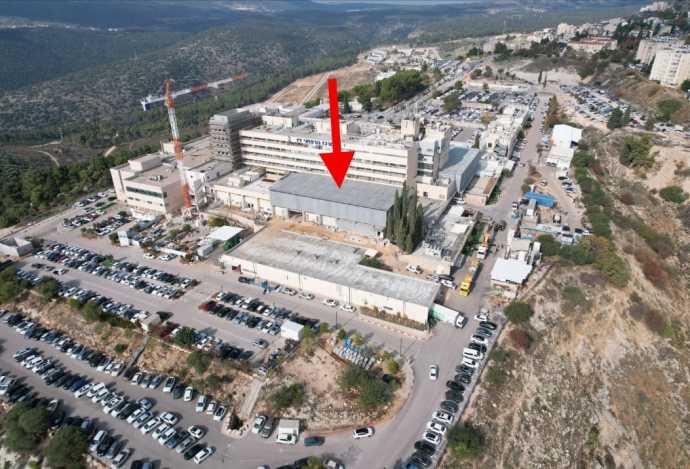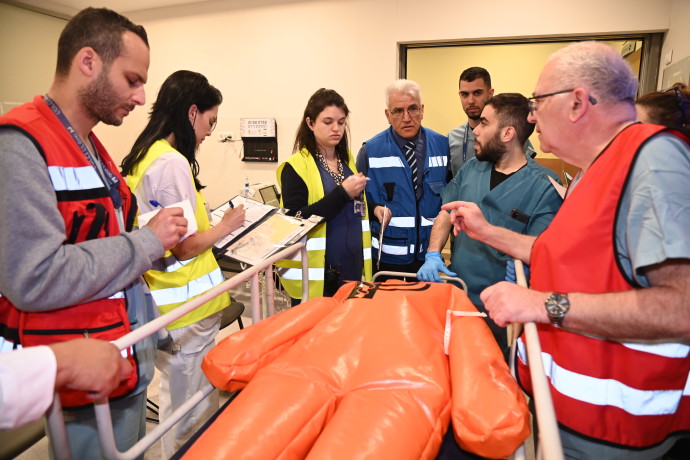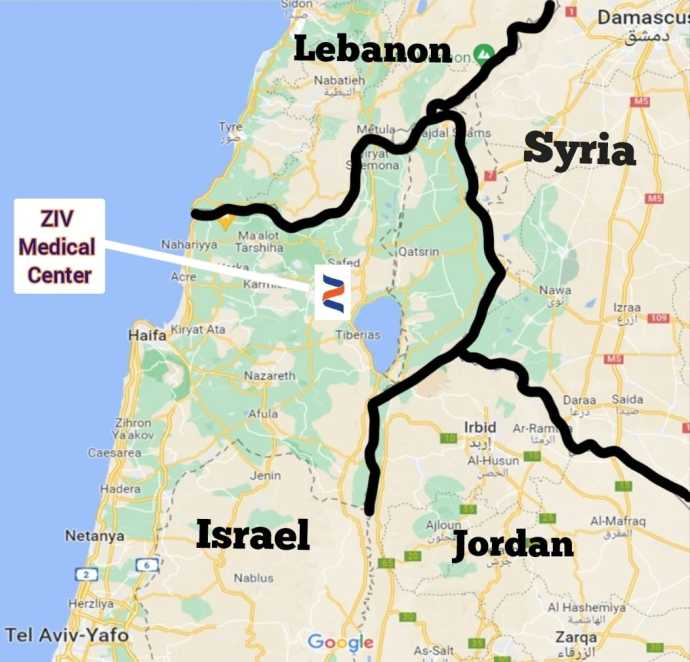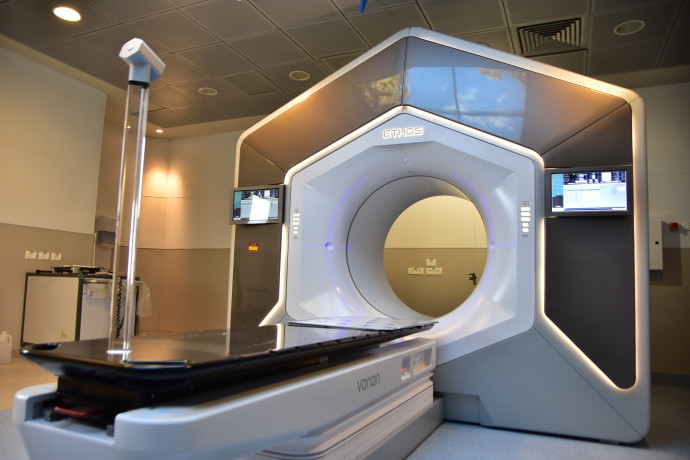When 65-year-old Moshe Elkabatz – a resident of the northern town of Hazor – spotted a wart on his leg, he did not think too much about it. However, soon his leg started to swell and an abscess formed on his foot, due to an acute infection.
“All of a sudden, I couldn’t walk or work and it greatly affected my quality of life,” he said. “It’s shattering to discover that in a short period, life could change so much.”
What made things worse was that no cure seemed to be able to help.

“The doctors changed my treatment again and again but the situation did not improve,” Elkabatz recalled. “I tried almost everything, different dressings, medicines and even traditional medicine, but nothing changed.”
Finally, a physician suggested that he undergo hyperbaric oxygen therapy.
As explained on the FDA’s website, the treatment involves breathing pure oxygen while in a special space called a “hyperbaric chamber.” The increased air pressure in the chamber helps the lungs collect more oxygen, and getting more oxygen to the tissues helps the body heal and fight certain infections.

However, soon Elkabatz found out that there was no hyperbaric chamber available for him in the proximity of Hazor. The closest one, in Haifa – some 90 km. away – did not have any availability. Therefore, he ended up receiving his 40 sessions of daily treatment for two rounds at the Shamir Medical Center in the Tel Aviv area, over 150 km. away.
“It was a very difficult period for my family,” Elkabatz said. “I was in pain. I could not receive the support of my children.
“While my condition has significantly improved, I need further treatment in the chamber, but the distance from home has become an insurmountable obstacle,” he added.
Elkabatz was still relatively lucky to be able to afford traveling and taking off work so many days in the first place. For many residents of the Golan and the Galilee, this is not the case and often they end up losing a limb, Prof. Salman Zarka, director-general of Ziv Medical Center, explained.
Located in Safed, Ziv is the country’s utmost northern hospital, serving a population of more than 300,000 people with 370 beds.

For Zarka, a member of the Druze community who recently also served as the country’s national coronavirus commissioner, Ziv is the crucial vehicle for a mission that has also become the ultimate goal of his life: bringing better medical services to the people of the region – and ultimately saving lives.
“I grew up with parents who always encouraged me to choose a career that would allow me to do something for other people,” Zarka recalled. “When I finished high school, I decided to study medicine at the Technion.”
Zarka also enlisted in the army, where he ended up remaining for 25 years, serving as the commander of the IDF’s Medical Services Center and as the head of the Health Division in the Medical Corps. He eventually retired with the rank of colonel.
“During my years in the military, at times my parents suggested that when I finished my service I would go back and become the doctor of the village of Peki’in where I grew up, to give back to my community,” Zarka said. “I feel that serving as director-general at Ziv allows me to do exactly that, not only for my village but for all the wonderful residents of the North of Israel.”
The doctor describes the population of the area as a unique mosaic of Jews and Arabs, Muslims, Druze and Christians, religious and secular people.
“Our patients, as well as our staff, around 2,000 people, embody the most authentic picture of this reality,” he said. “Witnessing how everyone works together, even in times of tension, is deeply inspiring.”
However, the residents of northern Israel also have to face many complex challenges, especially as many of them come from low socioeconomic backgrounds, which frequently translates into health issues. At the same time, not all the necessary services are available to them, like in the Tel Aviv or Jerusalem areas.
“In 2010, the disparity between central and northern Israel in terms of health services was even higher than today,” Zarka pointed out. “In 2014, after I finished my army service and became the director of Ziv, improving the standards of care to close this gap became my goal.”
According to the professor, the hospital has the full capability to achieve the target in a speedy and professional way – provided that it is given the necessary resources.
For this purpose, establishing a hyperbaric chamber at Ziv has recently become one of Zarka’s priorities.
The equipment is often crucial to treating diabetes patients – a condition that is very common among people from low socioeconomic backgrounds. If not properly treated, patients often risk losing a limb, with a terrible impact on their quality of life.
“Let us picture a middle-aged woman from a village in the Galilee, whose only family car is used by her husband to drive to work and who needs to receive a hyperbaric chamber session every day for 20 to 60 days,” Zarka said. “To do so, in the best case scenario, she needs to travel to Haifa, by bus, some two hours each way. For many patients, this means that they have to give up treatment, with catastrophic consequences.
“We have already received all the relevant permissions for the hyperbaric chamber from the government, but we need some NIS 20 million in order to have it in place by the end of the year,” Zarka added.
To achieve the necessary sum, Ziv has been in a race against time to raise funds. So far, they collected around NIS 3m., but more is needed considering that any delay could cost more people to lose their health or even life.
In recent years, the hospital has already scored some big successes to improve the services offered to the residents of the region.

“Cancer diseases are the most common cause of morbidity in Israel,” Zarka said. “In order to treat cancer, radiotherapy represents one of the most important tools. Until recently, the closest hospital offering radiotherapy in the area was in Haifa, but today we have a radiation center at Ziv.”
At the same time though, the hospital still lacks an oncology ward for patients who require hospitalization, and the only four oncology beds available are located in the Internal Department – which can expose people with a weak immune system to many risks. The hospital has been waiting for the Health Ministry’s approval to open the ward for many years.
Because of its location, Ziv is also on the frontline of the security threats that Israel faces from its northern borders, and for this reason, the hospital needs to be prepared for possible situations of emergency. For example, there is a need for more comprehensive protection for operating rooms, maternity wards and delivery rooms.
After serving as Ziv’s director-general for seven years, in 2021, Zarka – who also holds a master’s degree in epidemiology and public health from the Hebrew University in Jerusalem – took a break to serve as Israel’s national coronavirus commissioner, before returning to the hospital after the emergency subsided.
“With my experience in public health and the military, I felt it was a duty for me to serve in this position,” he highlighted. “Working together with so many colleagues and partners in the government, the academia, the NGOs and the medical services to fulfill this mission was an honor.
“It also represented a crucial endeavor to help Israel’s different communities. Much like we do here at Ziv.”
This article was written in cooperation with Ziv Medical Center.
